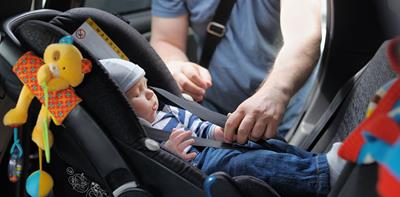
While most cars on UK roads have a manual gearbox, many drivers prefer the ease of driving an automatic.
There are several types of automatic gearbox, but put simply, they mean the car selects the gear that suits its speed, so the driver doesn’t have to. Unlike a manual car, there’s no clutch pedal needed to change gear.
So, if you’re thinking of buying a new car, should you go for an automatic or a manual? Here we take a look at some of the pros and cons of each.
Ease and safety: why you might choose an automatic
1. They’re easier to drive
With no clutch, many people like automatic cars for their convenience and for the smoother ride they provide. Even if you’ve been driving a manual all of your life, you could probably very quickly – even within a few minutes – get the hang of an automatic. It might just feel a little strange for a while.
2. No more stop-start pedal pushing
Taking your foot on and off the clutch pedal in slow-moving traffic can be a chore and become physically uncomfortable, so automatics make your life easier.
Whether it’s avoiding that constant clutch work in stop-start traffic, or staying in the right gear at a roundabout, an automatic transmission simply means you can focus your attention on other aspects of driving and staying safe.
3. No more grinding gears
Automatics are less susceptible to driver abuse than a manual. This helps them retain their value better than manual cars.
4. They’re safer than manuals
When you change gear, you take one hand off the steering wheel. In an automatic you can keep both hands on the wheel, meaning you have more control over your car, which is particularly important when you have to react quickly.
5. Learning is easier
Some learner drivers find it excruciatingly difficult to find the biting point in manual cars.
By learning in an automatic, rather than fretting about stalling, you can focus more on other elements of driving, such as speed and road position.
No £25 admin fee
When you update your policy online, e.g. amend driver, address or car details.
Thrill of the road and money-saving: reasons to stick with manual
1. They’re usually cheaper
If you’re on a budget, whether you’re buying new or buying a used car, you’re likely to opt for a car with a manual transmission.
Manuals are cheaper as they’re less complex and more common - 70% of people polled by the AA said they drove manual cars and had always done so.
2. They’re seen as more exciting to drive
Some motorists, particularly enthusiasts, say they would rather take the bus than drive an automatic as they say an automatic transmission takes the thrill out of driving.
But tell that to a Ferrari or McLaren driver - you won’t find a clutch in these supercars.
3. Manuals are cheaper to maintain
A manual transmission is less complex than an automatic one, meaning it is generally cheaper to maintain and have repaired.
4. It’s simpler to learn to drive in a manual car
We’ve already said it’s easier to learn in an automatic car, but in fact, you could find your life is a lot simpler if you learn to drive in a manual.
If you learn in a manual car and receive your manual driving licence, then you’re fine to drive both manual and automatic cars.
But if you pass your test in an automatic you will only have a licence to drive an automatic vehicle. You would have to re-take your test in a manual to drive a manual.
5. Manuals are more fuel efficient... sometimes
As automatic cars rely on engine power to shift gears, some are less fuel efficient than manuals.
But this is changing. Auto Express has found that some of the latest automatics are actually more fuel efficient than manual cars, as they change gears more smoothly and at a better point in the rev range.
In summary…
So, is it better to have a manual or automatic car? You might prefer an automatic as it’s easier to drive and safer, as you can keep your hands on the wheel. But a manual is likely to be cheaper and a lot more fun!
Which will you choose?
Go to Solved to read more about driving, the rules of the road and road safety.
You can find out more about our car insurance here.


